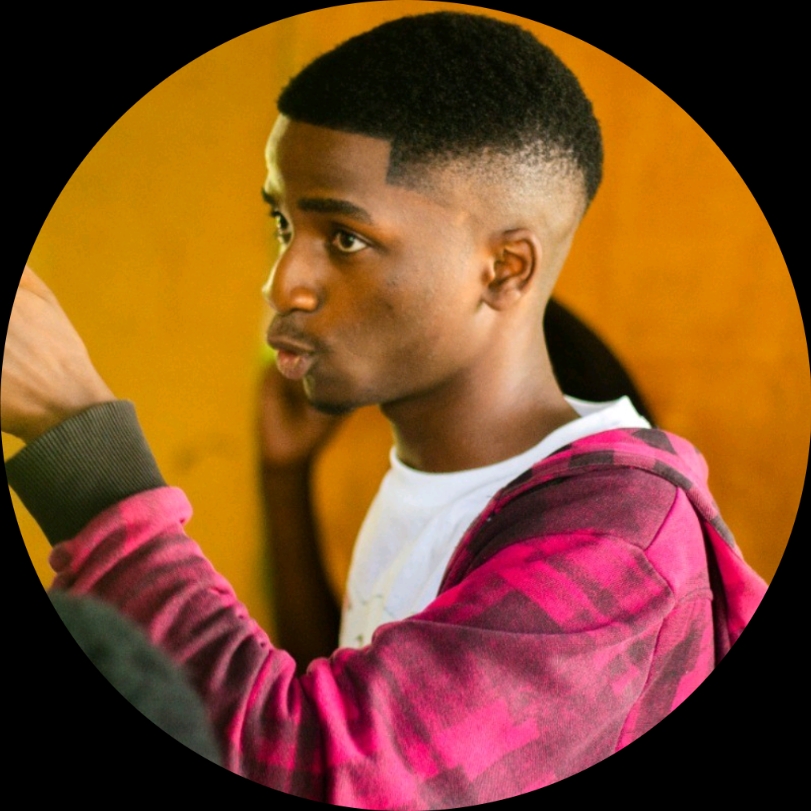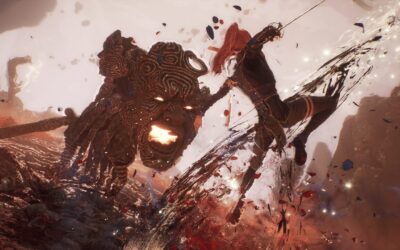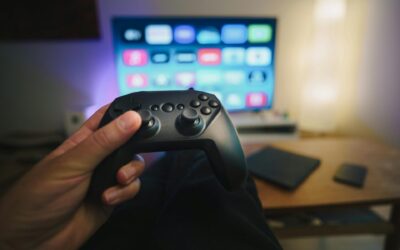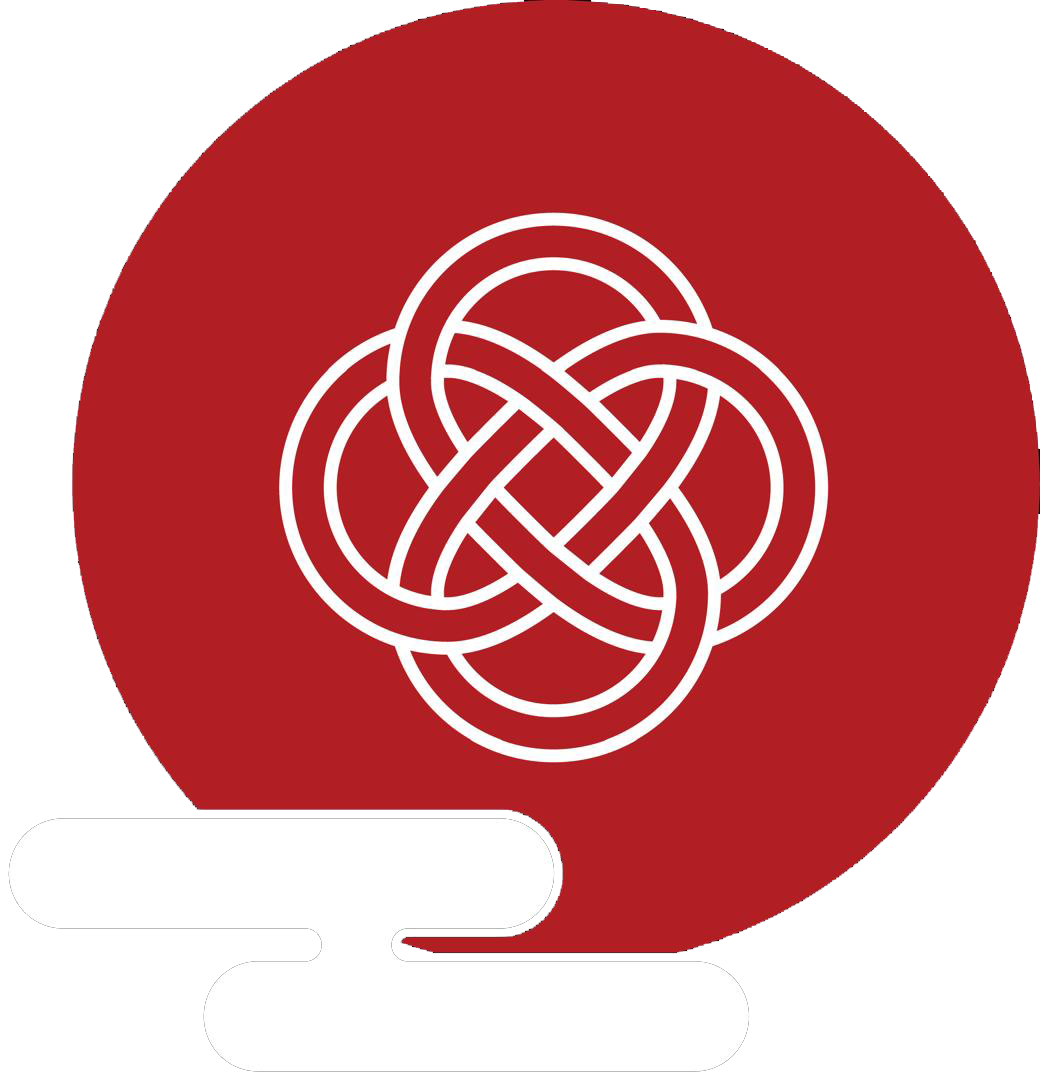GASLIGHT, GREMLIN, GIRLBOSS: THE APOTHECARY DIARIES AND HOLLOW FEMINISM

There’s a kind of beauty in restraint, not the kind that hides emotion, but the kind that simmers just beneath the surface, like heat behind a half- glance. Watching The Apothecary Diaries feels like meeting a person who doesn’t beg to be understood: someone who thinks more than they speak, who says little but somehow sees everything. They don’t try to charm you. They don’t need to. And yet, before you realize it, you’re leaning in closer, hungry to hear what they’ll say next… or what they won’t.
I shouldn’t need to say this but full disclaimer: this work of art includes discussions of women’s issues. My argument is that The Apothecary Diaries is an excellent anime that is able to sufficiently tackle female-centered topics while still remaining accessible, and compelling to a broader audience. This is not an attempt to scold or single out any group, but to shed light. I’ll avoid major spoilers and delving too deeply into the plot.
Set in an imperial court where connections are everything and silence is survival, the story follows Maomao, a former apothecary with a sharp tongue, and sharper mind. She navigates her world with the quiet confidence of someone who knows how to handle poison and therefore, people.
There exist many works of media meant to empower women. Fictional characters make excellent role models and symbols of power, inspiration, and hope. There are definitely hits and misses, and Hollywood has leaned towards the “girlboss” trope, popularized by characters like Elle Woods from Legally Blonde, and Miranda Priestly from The Devil Wears Prada. The original “girlboss” archetype blended ambition with femininity, usually including some sort of capitalist success narrative. Over time, that concept evolved or rather diluted into a hollow money formula: power limited to brute strength, confidence lacking vulnerability, and independence reduced to arrogance.
The average “girlboss” is a hyper-competent woman asserting herself “in a man’s world”. And while that might sound empowering on the surface, it often spawns the type of character that is incredibly uninteresting (as any “perfect” character would be), tends to insult male audiences and in turn become easy prey for anti-“woke” critics who seem more bothered by the presence of women on screen than by how well those character are written.
In many cases, anime aimed at empowering girls will depict a young woman who is very loudly, stubbornly independent, often with little nuance. She’ll make sure everyone knows it, sometimes very dramatically. There will almost always still be some sort of romance (because that’s what sells), but that’s okay because it’ll be the most attractive or powerful man around, right? That doesn’t sound very feminist. Wait, it is okay because she’s still independent, remember she’s just a gworl.
The archetype has very corporate roots, that fundamentally didn’t actually care about expressing women’s power. It’s not an expression of the power of women: it’s selling the idea of power to women. To me that still feels like internalized misogyny winning in a different coat of paint. I know the people making these things do mean well but they get lost in translation.
The anime industry is slightly less problematic in it’s approach to female empowerment but the messaging is so blunt and simplistic, it borders on intellectually insulting. In many cases, anime aimed at empowering girls will depict a young woman who is very loudly, stubbornly independent, often with little nuance. She’ll make sure everyone knows it, sometimes very dramatically. There will almost always still be some sort of romance (because that’s what sells), but that’s okay because it’ll be the most attractive or powerful man around, right? That doesn’t sound very feminist. Wait, it is okay because she’s still independent, remember she’s just a gworl. These protagonists will go to war against the system, and in her lonesome (possibly in the form of a big scolding), she’ll singlehandedly solve the problem that potentially generations before her have failed to overcome. While this is more palpable than in Hollywood, the male audience probably rolled their eyes just reading that. But why?
The Star Wars sequel trilogy offered a less overtly obnoxious, but still deeply flawed take on the girlboss archetype with its protagonist Rey Skywalker. Rey is a self-insert character: she lacks distinct flaws or depth so that viewers can easily project themselves onto her. She’s written with immense competence but very little nuance, leaving her without a clearly defined personality, credible growth, or earned accomplishments.
In effect, Rey becomes a textbook Mary Sue: a character who doesn’t evolve but succeeds effortlessly. She isn’t a fully realized person. She’s a vessel. And while representation matters, it should never come at the expense of compelling, believable storytelling.
Enter Maomao : Neurospice, Poison, and a Social Battery of 2%

Maomao is an excellent example of how to write a compelling female lead, or any lead for that matter. She’s a witty gremlin with humor and a soul. She strategizes, bargains, and manipulates her way out of trouble. She’s goofy, casually likes to test poison on herself for fun, but she can also be deadpan and genuinely terrifying (has there ever been a more perfect woman?). Maomao solves mysteries using her apothecary knowledge and pragmatic intellect, tackling everything from stolen property to murders. Her motivation? Not getting fired of course.
Most of the criticism aimed at her tends to focus on her general lack of enthusiasm, and her often disdainful attitude toward others. To paraphrase one reddit user “Being quirky isn’t a personality…..she has as much personality as a dead fish”. I can’t help but wonder if they’ve ever had coworkers.
Maomao doesn’t even get flustered when conversing with every man like many female anime characters do. She doesn’t perform for anyone: not romantically, socially, or emotionally. Personally, she reminds me of my own neurodivergence (don’t quote me I’m in no way a psychology expert, the word just best describes… whatever this is.). She’s highly functional and fascinating but isn’t very active socially. It’s lovely witnessing her go on mental tangents about things she’s passionate about. She’s an apothecary, no one is going to relate to her interests but yet she’s so effortlessly alluring. Goes to show that you shouldn’t bend over backwards to make characters copy your audience, but instead make characters that are complete on their own. I’m very much against the idea of reforming art to mirror audiences; that’s a business tactic that should stay away from art. Just be genuine and interesting. The rest comes naturally.
In many ways, Maomao feels like a “skill check” in media literacy. She’s an analytical, critical thinker and her story demands critical thinking and analysis, which makes her resonate more with viewers who can understand, and enjoy that kind of engagement. For everyone else, no comment.
Unlike many “aid driven” women in fiction, Maomao values science over healthcare, she doesn’t devote herself to helping people per se. Instead she’s driven by curiosity, reason, and a genuine love for pharmacology. Her motivation is more intellectual than moral. That’s a breath of fresh air from the “angelic caregiver” archetype popular with female anime characters where the women are expected to heal, sacrifice, or empathize endlessly. Her equanimity may make her come across as cold but she’s really just detached, not uncaring; think Sherlock Holmes, not a heartless machine. In reality, solving problems requires exactly that kind of composure.
If there’s one thing in particular that makes Maomao an outstanding character who is generally more interesting to male viewers than other female leads, it’s that her competence is earned, not given. Too often, we see “powerful” characters who only have power for as long as the plot desires it. Personally, I love a character who earns my respect by just being that cool/powerful. Characters who don’t do this appear hollow because their standing only seems to exist at a surface level with no meaningful follow through. It’s a common writing pitfall: telling the audience how impressive someone is without ever showing it. There’s a reason “show, don’t tell” is a foundational storytelling rule. Don’t tell me you’re scary, scare me! You don’t need to tell the audience what you can better express through setting, tone, environment and actions. Maomao does exactly that.

That being said you can have all the power in the world but with that great power comes great responsibility. In this case the responsibility is to have flaws. Rey and Captain Marvel (Brie Larson’s Carol Danvers) don’t have meaningful flaws. While they technically have some imperfections on paper, those flaws rarely create setbacks, force character growth, or drive the narrative forward. Take Captain Marvel: her character arc revolves around removing restrictions rather than wrestling with internal conflict. Her supposed flaw: being told to control her emotions, is never something she personally wrestles with. It’s a message imposed from the outside, and dismissed by the end without real inner conflict. She ends her arc more powerful, more confident, but essentially unchanged as if to affirm that she is not flawed. And that’s strange, isn’t it? Because real people are flawed. So why is flawlessness treated as empowering?
A meaningful flaw is one that causes problems, forces the character to reflect, and ultimately drives growth. Many characters are recognized and distinguished mainly through their flaws. Think of Zuko’s pride, Aang’s fear of killing, or Luke Skywalker’s impulsiveness; these flaws create obstacles and arcs that have led to these being the most revered characters in fiction. Flaws are strength, not the fake kind rooted in bravado, but the kind that comes through struggle and transformation. Rey and Carol, by contrast, don’t really have that. Their stories often feel like vehicles for empowerment, rather than character exploration. That is not okay. Why? It flattens a complex human issue into a slogan. It immediately becomes an “us vs them” binary, where empowerment is simplified into a catchphrase. Take Captain Marvel, its message boils down to “emotion = good” and “suppression = bad” But it’s not that simple. Emotion can be a source of strength when mastered, and mastery requires struggle.
Maomao, on the other hand, fails and that matters. Her mistakes directly impact the plot. In fact, the events of the Apothecary Diaries only take place because Maomao’s own mistake: her own negligence, leads to her being kidnapped. Throughout the show, her missteps often have tangible, sometimes severe consequences. There’s a time her overconfidence gets her physically beaten up forcing her to ask for help from her enemy. She still gets further injury and is nearly executed.
This is what real agency looks like. She doesn’t walk through the world helpless or victimized by an unjust system. She makes choices, choices that shape the world around her. That’s agency: a character’s ability to act in meaningful ways that influence the story.
Agency must be tested. Think of video games: you might be given all the tools to change the world, but that potential only becomes meaningful if you actually get better, learn from failure, and evolve. Ignore that, and you’re left with a hollow power fantasy (see also: Captain Marvel) and many players don’t feel the need to invest time into something so hollow.
Hollow Feminism

Captain Marvel does technically have agency: reclaiming her identity, choosing morality etc, but even with all this, her agency is often more ideological than personal; she’s too emotionally flat to ever have a true high or a true low. The movie spends more time telling us she is empowered instead of writing the damn character that way. Ultimately, she isn’t compelling enough, and doesn’t feel human (which is saying a lot considering she shares a universe with artificial beings like Vision and Ultron who are more emotionally compelling). The lack of depth in her role in Endgame reduced her to feeling more like a plot device than a character. Unfortunately, this kind of hollow power fantasy resonates with some fans.
Agency isn’t just about power. It’s deeply tied to a character’s competence, their position in society, and their identity. Some readers mistakenly view limitations in these areas as a lack of agency, but real agency means having to live with the consequences of your actions. Maomao has that in spades. She’s written like a real person, not a slogan. A person who has a responsibility to not make mistakes. I’ve put some emphasis on this point because I know many people in real life who don’t have agency, let alone in fiction. We could learn a lot from Maomao.
Show, don't tell: Feminism as worldbuilding
Maomao works under an incompetent court physician, so she ends up doing his job, everyday. In a series that largely keeps us inside her mind, she never launches into rants about the unfairness of her situation. She doesn’t complain that the palace should promote her. Even saying that under her breath at night would get her beheaded. Occasionally, she receives help from a high-ranking official named Jinshi, but even he treads carefully within the palace’s rigid hierarchy.
This isn’t just a narrative quirk. Implied violence stops people from speaking out, in an attempt to maintain social order. This is the world Maomao lives in.
Rather than claiming moral high ground, lecturing men, or villainizing individuals, the story focuses on exposing the effects of the systems that place. The fact that the author, Natsu Hyūga, makes it impossible for her characters to just charge into the gates and end the system is realistic and brilliant writing. If she had chosen to lecture (or blame) the audience (or specific demographics), many viewers would be put off. Not because they don’t agree that the system is unjust, but because the story would become accusatory. I think A LOT of feminist media is misunderstood because of this very reason.
Many depictions of abled-women in oppressive societies show them resisting by making reckless decisions that lead to disaster. It’s like watching that one character in a horror movie getting themselves killed: you understand their anger, but not their strategy.
Maomao is passive (not weak), she limits herself to her social rank because well, she could just breathe wrong and get her head chopped off. Open rebellion isn’t courage, it’s suicide. She knows better. She’s put herself in a spot where she isn’t praised for being docile, or being punished for being brilliant, and that’s what makes her compelling in this setting. She manages to spite the system by helping whoever she can while maintaining her job (and life). The cards she’s been dealt are bad, but she’s a good player. She’s clearly driven, else she wouldn’t be a very good protagonist, but her passivity is a direct result of the system that she’s in; she’s directly oppressed and acts in spite of that.
We are all participants of this system and it’s important to understand it is a system and it is the problem; any other interpretation leads to an endless blame game. (I fear that if I phrase this another way I’ll end up on a watchlist). That’s the real motivation for writing these messages, but more often than not it comes off as “this type of person is bad”. This is so terribly vague it hammers everything but the nail. It’s set up like an explicit call-out, which naturally repels people. Because we ALL have a built in negative reaction to being called a bad person irrespective of gender.
The sometimes extreme call-out makes it seem like the writers are directly telling the men that “this action” is bad. Most men agree with the statement but and what this communicates, is that women are complaining about a non issue. If anything, it reinforces the idea that most men are not at all at fault for any of women’s issues because “I’ve never thought of hurting a woman so they aren’t talking about me”. Men in support end up with a mental monologue that sounds like: “I know I’m bad but not specifically bad, the women are talking about the men who are bad but not me specifically”.
When this happens I assume the target audience isn’t male because if in any capacity it’s speaking to men, it’s doing a VERY bad job. If it’s not targeted at men, one could argue it bears no responsibility to educate men, but it being feminist media, the message tends to fall on male ears and the natural responsibility falls on the media to educate men the same way that whether we like it or not, it’s also men’s responsibility to stop the system. Carl Jung said it best; “Until you make the unconscious conscious, it will direct your life and you will call it fate.”
You can't fix what you don't understand
One thing that perpetuates women’s issues and realities is how they are widely considered taboo. Many men don’t want to hear words like PERIODS, MOLESTATION or RAPE, but women don’t have such privileges; they experience these things (Not to say men can’t experience assault, just that even then men don’t talk about it enough). Because of its setting, most of the male characters in the show are eunuchs – forcibly castrated as a prerequisite for their employment because the emperor needs to be seen as the manliest man in the room and can’t risk any possible threat to that.
Most of the characters in the Apothecary Diaries are women, most of whom are either currently or previously prostitutes, or under some form of ownership to the emperor. These women are generally depicted living good lives, and the consorts in particular are even glamorized (mostly), and the emperor isn’t depicted negatively. The average depicted rape scene in this kind of media is an important aspect that can go many ways. If it comes off depicting all men as savages who should be feared indiscriminately, (that may sound like reality to many women but it’s generally not true (But then how would they know who’s good)), the men watching may rightfully take personal offence and miss the point of the scene. Taken at face value, the take away is “I get it, RAPE BAD, but I’m not a rapist”, and while this may come off as dismissive to some, it is true.
“No man chooses evil because it is evil” – Mary Shelley
Normal men who make up the majority have real sympathy: every single man came from a mother. They don’t like the idea of their loved ones being hurt. THEY WANT TO TAKE ACTION, and what you’re showing them is that women’s problems start and end with the perpetrator. Naturally the solution to that is doing anything in their capacity to stop the person.
This reinforces the audience’s belief that the only people with control over anything are the people actively committing these crimes against humanity, and people who actively stop them, when in reality, some criminals likely can’t be reasoned with, and dealing with the issue once it gets to that stage isn’t as helpful because it’s already too late. The only person Maomao tells about her kidnapping is Jinshi, and It’s very important that she is talking to him specifically because Jinshi, like you esteemed reader, is a “good guy” “who would never hurt a woman”. He literally tears up upon hearing Maomao’s story, but he suggests sending more armed men to the pleasure district to “protect the women”. He doesn’t consider that the men he’s sending might be the very ones kidnapping women. It’s a very serious emotional scene where she is telling a man who lets her know he didn’t know and if he did, he wouldn’t tolerate it. She immediately assures him that it’s not his fault and there was nothing she could have done as that day: her makeup faded, she tells him the system is out of his control. However, it was very much within Jinshi’s responsibility, and he potentially could actively contribute to the problem. He isn’t aware of the source of the problem, and that makes anything he does useless or even negative. Ban whatever you want, execute who you want, install cameras where you want, hire more men, hire more women. It’s all for naught if you don’t understand the systematic issues and self-reflect. To reiterate “We are ALL part of a flawed society”.
You are not the "Good guy"
Villainizing evil men in fiction like the Fairy King Oberon from Sword Art Online, or the goblins from Goblin Slayer for harming women specifically makes audiences see the activity as villainous behaviour, but viewers will never introspect because they don’t see themselves when they see a chat of animalistic goblins, or a narcissistic fairy control freak. Jinshi clearly is good and relatable. He isn’t the paragon of purity, he’s slightly rebellious, and actively tries to seduce people. The emperor is seen as a good man, and makes all the rules but doesn’t have any obvious negatives. He doesn’t seem mentally unstable or attack people for who they are, make life unlivable for the working class, or make outlandish decisions just because no one can stop him. Cough cough.
This show is rooted in reality and won’t exaggerate a negative to make a point. Many works of fiction will do this to emphasize a problem. But this problem hides in plain sight through subtlety so the show brings us down to subtlety. The emperor can legally sleep with any of his wives without their consent on a whim (one of which is a minor), but chooses not to because he’s somewhat normal. We could close the book there and call it a day, but when you think about it the society is built so the leader CAN sleep with a minor if he so desires it. “When you’re a star, they let you do it. You can do anything. Grab ’em..”
“When you’re a star, they let you do it. You can do anything. Grab ’em..”
So the women have to appeal to the right man the right way to just survive. That’s WAY more valuable than “rape bad”.
In case you think “women’s issues” are only relevant to women and men have no stakes, the show does an amazing job of showing that men are also very much victims of the system.
The patriarchy is bad for men too. Maomao is unable to prevent the death of a baby boy because of her rank: she was limited by the system and a boy died.
In-fact one of the best stories in the show is that of Lakan, a military strategist with an unnatural obsession with shogi (Japanese chess) and go (another board game much harder than chess). He is incredibly anti-social and apathetic partially because he has a condition that gives him face blindness(It’s a rare cognitive disorder called prosopagnosia). This changes when he meets a courtesan named Fengxian who is the first woman to challenge him intellectually. He suffered a resounding loss at her hands, and (according to him) she’s the best go player in the country. They soon fall in love.
The only way they can be together is if Fengxian loses value as a courtesan by getting pregnant, and Lakan pays money to claim her. She gets pregnant but unbeknownst to her, Lakan gets sent away by his father because he was close to his uncle, a brilliant physician who was branded a criminal by the Empress Regnant. Fengxian kept the pregnancy and gave birth believing Lakan still loved her and would return. Meanwhile Lakan planned to come after 6 months, but instead took 3 years. During his leave, she lost her value and position as a courtesan, and had to rely on streetwalking to survive and feed her child, but since she couldn’t choose who she slept with, she contracted syphilis. Lakan’s uncle may have been able to treat her but he was never allowed because nobody trusted him.(**Taps sign** ). The perceived betrayal, sickness and losing everything leads Fengxian to abusing and permanently scarring her child.
All this could have been avoided if women here were just allowed to love who they love, you see the issue now?
Once the idea is in the homeground as a local issue, it’s way easier to find motivation to fight for it.
Conclusion
The Apothecary Diaries offers nuanced feminist storytelling that resonates across gender lines by showing, not telling. Instead of physical strength or emotional nurturing, Maomao’s power comes from observation, memory, and a deep understanding of how things work. It’s an often overlooked realm of power for female characters, and real women. She’s not “strong despite being a woman”; she’s strong as a woman, on her own terms, in a hyper-patriarchal world, without needing to be overly likable, motherly, or loud.
Many female characters are only allowed to be admired if they sacrifice, rebel, or conform: Maomao does none of those. She’s just competent, self-protective, and curious. She is a rejection of the “purity equals virtue” mold. She embodies a kind of selfishness, curiosity, and realism that many stories deny their women, and that ironically makes her much more human, more admirable and damn near perfect. My best girl.
The Apothecary Diaries has stellar quality to match the excellent writing, so its popularity is not slowing down anytime soon. Its been nominated for Crunchyroll’s Anime of the Year Award 2025, next to the likes of Frieren and Delicious in Dungeon. Additionally, its been nominated for a whopping 12 awards (Girl of the Year, Boy of the Year, Best in Voice Acting Performance, Couple or Ship of the Year, Supporting Boy of the Year, Supporting Girl of the Year, Opening Theme Song of the Year, Ending Theme Song of the Year (x2), Best in Adapted Screenplay, Best in Character Design, Best in Soundtrack, Drama of the Year, Mystery or Psychological Anime of the Year).
At the time of writing The Apothecary Diaries Season 2 is coming to a close but the production is so behind Hyūga’s writing we are just getting started with Maomao’s journey.
You can stream The Apothecary Diaries on Netflix and Crunchyroll today!
Read More Of Our Stuff
A ‘Clair Obscur: Expedition 33’ review
A Clair Obscur: Expedition 33 reviewAs someone who has only ever flirted with the turn-based RPG genre, I am surprised at how much Expedition 33 hooked me in. To set the scene: I am your stereotypical, action-adventure junkie. I am also enthralled by the flashiness of...
Bridging Worlds: How Video Game Adaptations Connect Gamers and New Audiences
The world of entertainment is increasingly interconnected, and one of the most prominent trends in recent years has been the adaptation of video games into films, TV shows, and even animated series.
The Rise and Fall of Gameloft
The story of Gameloft, once a titan in the mobile gaming industry, is a fascinating reflection of the broader rise and fall—and subsequent resurgence—of mobile gaming as a whole.










